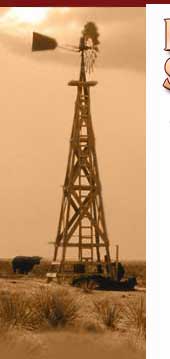|
Strategically feeding protein and energy during wintering and managing cow condition
Don Adams, Beef Nutritionist, UNL

Don Adams, University of Nebraska beef nutritionist, told attendees that strategic weaning and supplementation can have significant effects on net returns during the winter. |
If spring-calving cows are thin going into winter, they are likely to be thin when calving season comes. According to University of Nebraska (NU) beef nutritionist Don Adams, a key time in the yearlong management of spring-calving cows is late summer. That’s when producers should consider taking steps to ensure cows have sufficient body condition for the winter.
During late summer and fall, nutrient content and digestibility of range forages decline rapidly. By fall, crude protein (CP) content of 5% is common, and digestibility may drop to almost 50%. Mature and dormant forages consumed by cows pass through the digestive tract at a slower rate, so the digestive system contains a large volume of undigested feed. This generally results in reduced consumption of forage.
"A cow consuming a forage containing 5% to 6% crude protein is not likely to consume enough forage to meet protein requirements during lactation or late gestation," Adams warned, while speaking to producers at the 2003 Range Beef Cow Symposium at Mitchell, Neb.
However, Adams said weaning of calves, grazing complementary forages, or a combination of both practices can be used to prevent loss of cow body condition during late summer and fall grazing periods.
Weaning the calf stops lactation and lowers the cow’s nutrient requirements, so a dry cow can more easily maintain body condition on lower-quality forages. Adams suggested that producers consider weaning in August or early September. By September, he says, a cow loses approximately one-tenth of a body condition score (BCS) for every two weeks that weaning is delayed.
Protein supplements improve the nutritional status of cows by increasing digestibility and intake of low-quality forages, and by helping increase nutrient flow of protein through the cow’s digestive system. Adams warned that feeding supplemental energy (such as corn) to cows receiving forage-based winter diets may further reduce digestibility and intake of forage unless protein requirements are met.
Feeding protein supplements during winter grazing has generally increased cow body weight and body condition at calving. Adams cautioned producers to remember that protein supplements are not a substitute for forage when forage is lacking.
— by Troy Smith
Click here to download the presentation (in pdf format).
You will need Acrobat Reader to view the sale ad.
Click the image to download a free copy.
Click here to listen to the presentation
You will need Windows Media Player to listen in.
Click here to download a free version.
|
